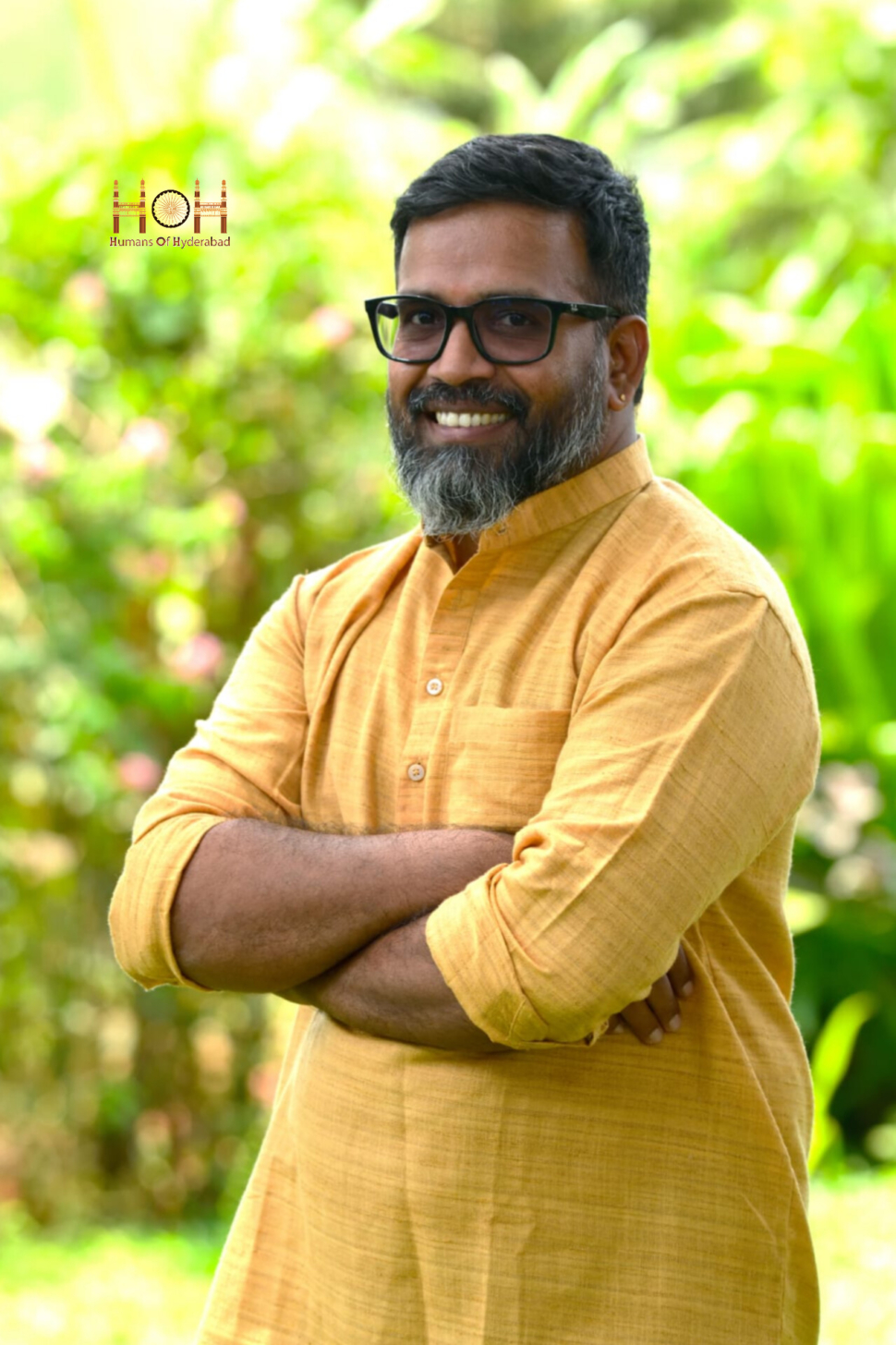“I was born and raised in Khairatabad, Hyderabad. Not amidst material luxuries, but something far richer: unconditional love from people of every walk of life. That warmth became my first education, quietly shaping my worldview. As a boy, I watched history being sculpted — the colossal Buddha rising at Hussain Sagar, the grand Khairatabad Ganesh celebrations. Hyderabad wasn’t just my hometown. It was my playground, classroom, and soul’s first imprint.
I walked miles to save a rupee on bus fare, squeezed into crowded buses, rode my first bicycle, and drove my first second-hand car. No matter the ride, moving through my city felt like pure joy. Comfort wasn’t in vehicles, but in belonging.
I studied in government schools and colleges, and briefly at a private school. It was a humble path that led me to an executive MBA at XLRI Jamshedpur, and now, to Stanford GSB. Life teaches us that we can’t always start with the end in mind. Keep doing the right thing, and good things will follow.
In the summer of 1994–95, I worked as an office boy at the under-construction Ramoji Film City, cycling there and earning ₹270 a week. Watching it rise taught me that dreams aren’t stumbled upon. They’re built.
Back then, even a colour TV seemed unreachable. Every Sunday, we walked six kilometres to the village sarpanch’s house to watch one, sharing awe with neighbours. Over time, dreams evolved — from wanting a TV, to building a better life, to envisioning change for society.
To reach college in Dilsukhnagar, I caught the only morning RTC bus. The next one was in the evening. I arrived hours early, often waiting at the Sai Baba temple. Back then, I didn’t know that success often looks like tiny, invisible wins stitched by determination.
Though my career took me to Bangalore, my heart remained with Hyderabad. I once posted a photo by a “Hyderabad 143 KM” milestone.
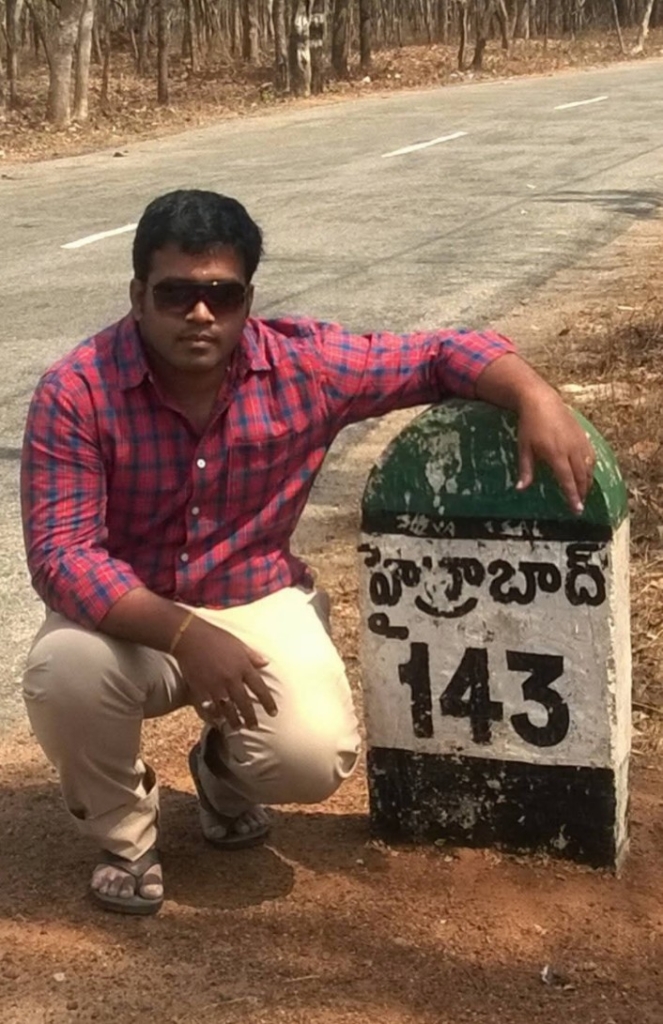
Friends laughed, but to me, it wasn’t just distance. It was longing. Because you can leave Hyderabad, but Hyderabad never leaves you.
“ये शहर नहीं, महफ़िल है।”
(This is not just a city. It’s a celebration.)
Starting out at a call centre, I worked through software giants, service firms, and into entrepreneurship. One question always echoed: Are you building something that matters?
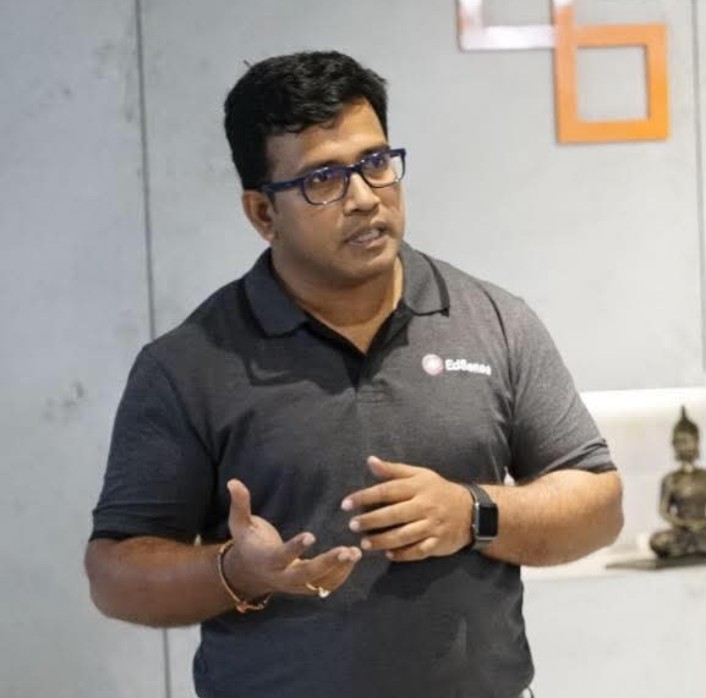
That led to co-founding EdSense — an edtech platform focusing not on grades, but on self-discovery and grit. Though the pandemic shut it down, our belief — that students are more than marks — lives on.
In 2019, I was drawn into the Ibrahim Lake Revival Initiative. We expected 200 people for a 5K awareness run. 1,500 showed up. We mobilised ₹22.5 crores in government support. Visits from leaders like Shri Konda Vishweshwar Reddy Garu and Shri KT Rama Rao Garu reminded us that ordinary citizens can drive extraordinary change.
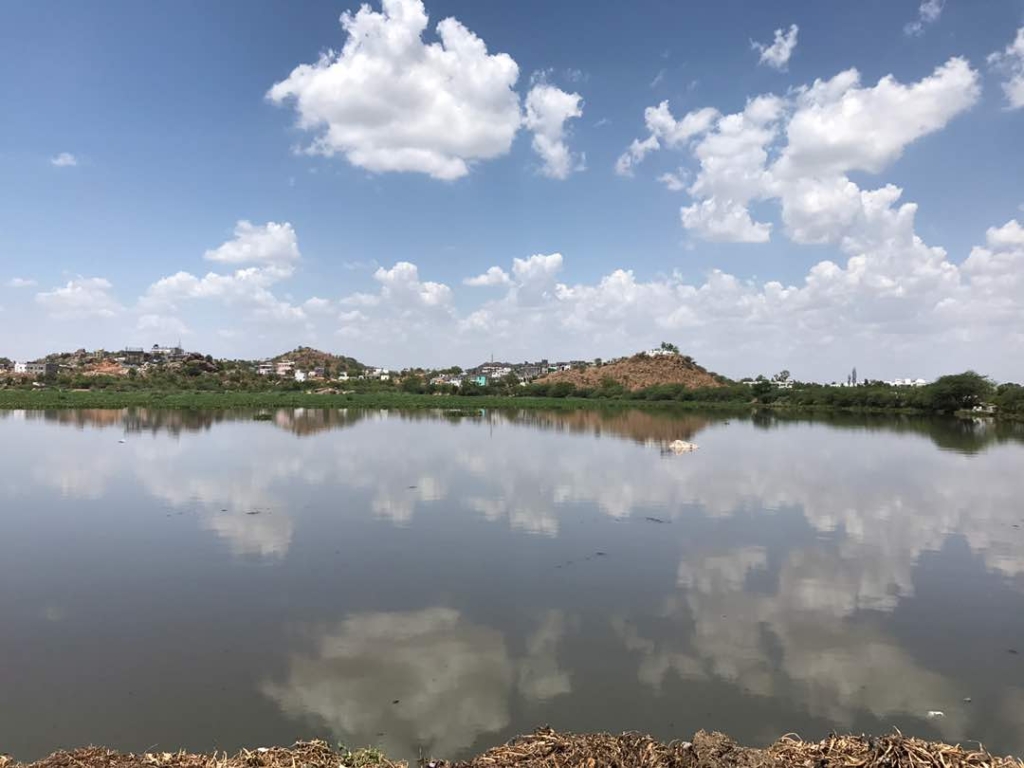
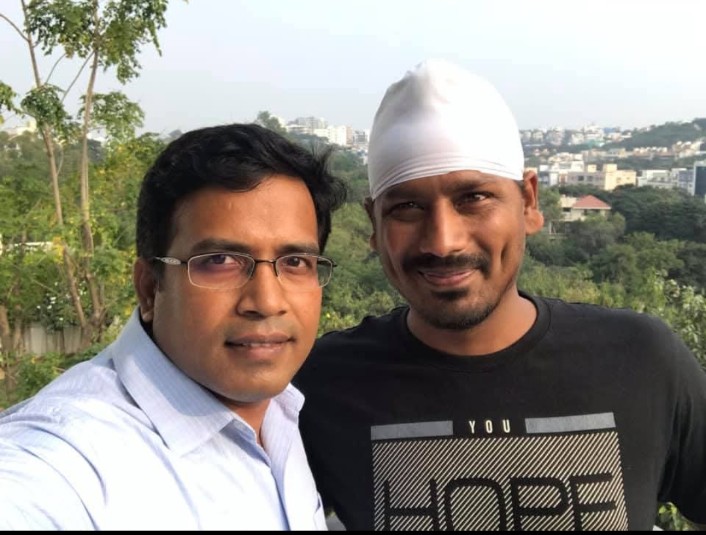
Seeing the power of stories, my friend Anshul Sinha and I ventured into filmmaking. Our first short film, A Silent Voice, had one dialogue but spoke to thousands, screening at the UN’s Lampa Film Festival and earning recognition from India’s Ministry of Climate Control.
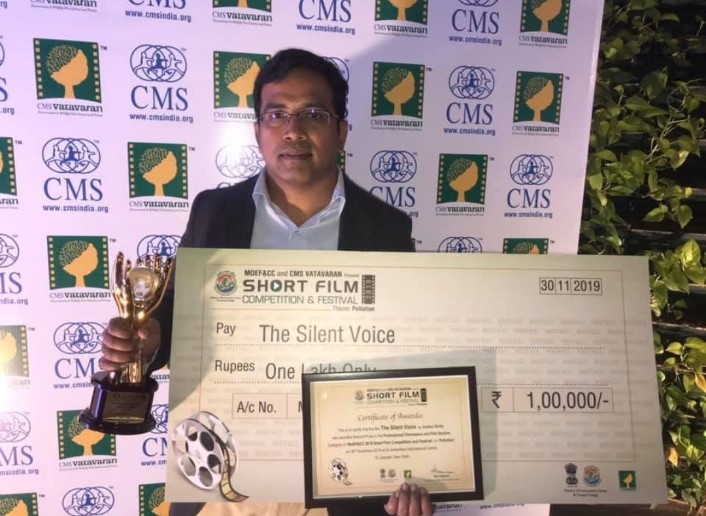
Inspired by filmmaker K. Vishwanath Garu — “Don’t just say every lake has a voice. Say every drop has a story.” — we created films on child marriage, water conservation, and ecology. Each was funded personally, each crafted to spark change.
Activism gave me a voice, but Vidyaranyam Veda Patasala gave me silence. In Chippalapally village, it’s home to over 120 Vedic students. Under Brahma Shri Madugula Shashibhushana Somayaji Garu, we integrated formal education, arts, and physical activity. We enhanced facilities and expanded care at the goshala named after my mother: Smt. Dinavahi Venkata Lakshmi Smaraka Vidyaranyam Gosadanamu. Among sacred chants and gentle cows, peace isn’t just felt — it becomes you.
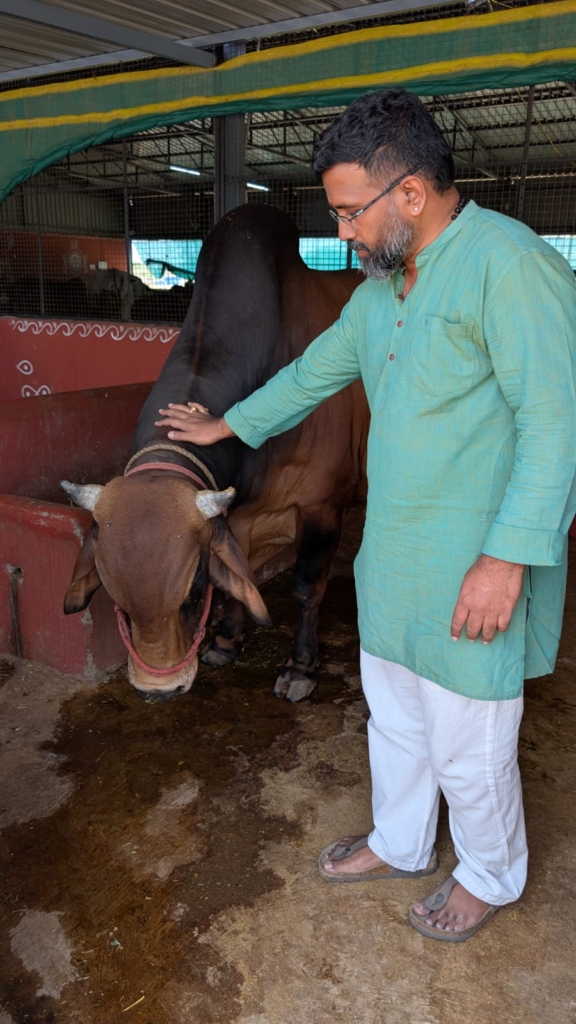
For over a decade, I’ve been connected with the Center for Social Service, a girls-only orphanage. Every scholarship earned, every girl stepping into the world reminds me that even a small drop creates a vast ripple.
During the pandemic, I launched the GRIT Stories Podcast — conversations with Padma awardees, bureaucrats, activists, even auto drivers. Listening, I learned, can be a quiet revolution.
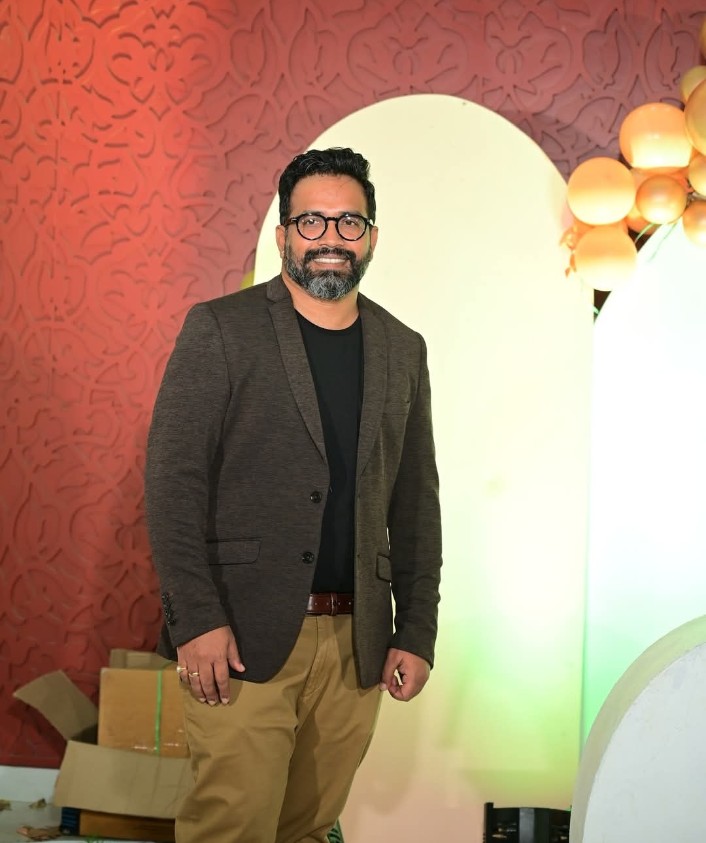
Professionally, I’ve worked across countries and cultures. Whether in technology, teams, or complex projects, one truth stood out: people matter most. Lead with curiosity. Operate with dignity. Let empathy guide you.
My first U.S. visit reminded me that I carry my identity with me. One misstep isn’t just personal — it echoes further. That silent responsibility shaped my conduct.
While I’ve done reasonably well, what gives me the greatest pride is being Indian. I still get goosebumps hearing our national anthem.
Today, I’m grateful for my journey — from XLRI to Stanford — not for titles, but for the love of learning. Teaching at ISB reinforced this: success isn’t about what you achieve. It’s about who you become.
The Bhagavad Gita speaks of Udyoga Dharma — dedicating skills to serve society. That’s not just an ideal. It’s the path I strive to walk.
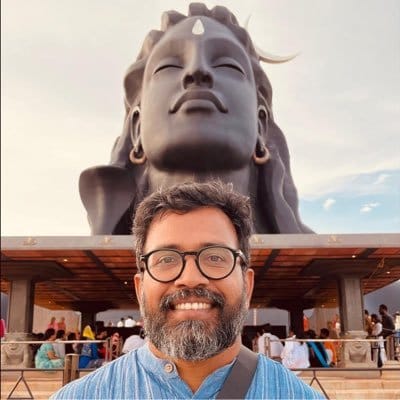
Looking back through EdSense, lakes, orphanages, and Vedic paths, I’ve learned one thing: action speaks louder than anything else. You don’t need permission to begin. Just start. If you rise, lift others with you.
Because in the end —
If you’re not giving, what are you really doing?
